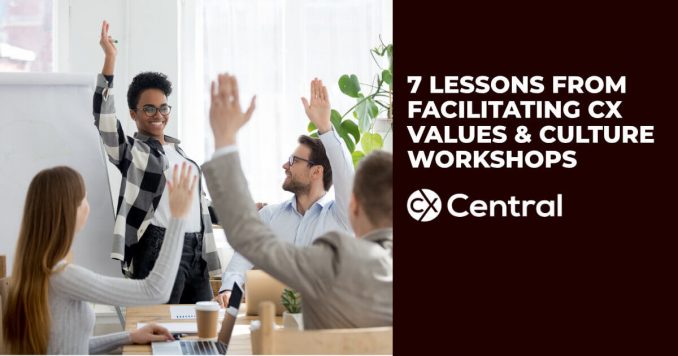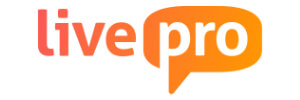
How you can drive CX values & culture in your workplace
In this article, I share what I learned running 60 classes on CX values and Culture for one client.
Three years ago I won a Corporate tender to deliver a customised CX Values and Culture workshop cross every single employee of a telecoms provider in Asia.
I’ll start by saying the Client was terrific and focused on Customer-centricity.
Their mission for the workshops was to promulgate their newly selected values across each and every member of the company.
We decided to put develop and deliver 2 versions of a full-day workshop.
One designed specifically for the folks that dealt with Customers – ‘the Frontline’.
People who worked in Retail, the Contact Centre or speciality roles directly serving the Customer such as a VIP Queue.
We designed a second version specifically for the folks that worked in the background or support functions – ‘the Backline’.
People from HR, Marketing, Operations, Legal, Procurement, IT, Finance and the like.
We kept class sizes manageable to allow for interaction and scheduled about 60 runs over a 2 year period.
Each and every workshop was super well received – there wasn’t one group where people didn’t respond positively and well.
That doesn’t mean there weren’t any questions or concerns. As you’ll see we wanted questions and concerns.
Here are some of the things I learned.
7 Lessons from running CX Values & Culture workshops
1. Help folks be proud of where they work
The Client Team I worked with was amazing.
Amongst the many contributions, they made to the success of the workshops was to develop an in-house video that shared the history, some of the famous advertising moments, the accomplishments achieved and the awards won.
As we tabulated the comments and themes across the sessions we found a regular comment (paraphrased) to be:
Thanks for reminding me of what a great place this is. I was proud to see our accomplishments across the years.
I know I know. You’ve got an Awards case that shows off all your trophies.
I know I know. They could see your achievements in the newspaper or the company newsletter or even featured in an industry magazine.
But part of successful culture change is this.
You don’t go into the room to tell folks how ‘bad’ they are or how ‘bad’ things are out there.
That’s not a really great way to motivate change.
We took the approach that the world is changing and what brought us here wasn’t going to get us there.
But that didn’t mean we couldn’t celebrate who we were and what we had accomplished and take that forward.
Lesson learned: We work in a great place – let’s take some time to celebrate that.
Culture change is part of our success for the future – not a reflection of a failure from the past.
2. Buzzwords are less understood than you might think
We set aside part of the session to cover some terms and let everyone talk about what they meant.
Terms like Omnichannel, Big Data, Digital Transformation. Even terms like Customer Service and Customer Experience.
I think in some companies it’s just assumed that people have a common understanding of terms like these.
But that’s just not true.
Participants shared that they weren’t really ‘fluent’ in buzzwords and appreciated going through what these things mean – and their specific relevance to their company and even their specific job roles.
I think shared accomplishments require a shared vocabulary. What is our definition and meaning around Big Data? What is our definition and meaning around Customer Service?
If you just throw around buzzwords without having defined specifically what they mean to you and your organisation you just leave people confused.
Lesson learned: Buzzwords are just that. You need to contextualise their meaning for your ambitions and your organisation.
In this day and age, we’re all a little tired of constant buzzword bombardment.
You can view a list of all the common acronyms, buzzwords and more on the free CX Glossary >
3. Give people a chance to express their concerns
I think one of the smartest things we did was build a formal way for Participants to express their concerns.
We used the term ‘barriers’. As in, what specifically, in your job role, holds you back from achieving these values.
Over the course of nearly 2 hours. Participants worked together, documented and then formally presented their barriers to the entire group.
The best part of being a Facilitator is just that – facilitation.
The point was to let the experts in the company – the people who worked there – talk about their work lives and the values they had been asked to consider.
People got heated, passionate and a few of the Presenters should consider a career in public speaking – it was that well done.
It’s a fascinating process to watch Marketing people talk to Finance people about their challenges.
And Retail people sharing with Contact Centre people about how their experience differs.
And then sharing their viewpoints with their colleagues.
From an analysis standpoint, we gathered and aggregated every single barrier expressed across the totality of the workshops – and organised them by department.
By the time the sessions were done, we had a master list of barriers which allowed for analysis, prioritisation and action.
Lesson learned: Don’t avoid talking about what is going to get in the way.
Bring the barriers front and centre.
4. As a Facilitator share what the values mean to you
I made it a point to only ‘commandeer’ the session for about 45 minutes in the morning – immediately after the morning warm-up.
Rather than blah blah on how important values are (boring), I used that time to share my personal opinion on each value.
And with each opinion, I attached a story.
So if the value was – let’s say – ownership – I expressed what ownership meant to me and then shared a funny story on ownership (or lack of it) that I’d experienced in my work.
Something that brought ownership to life.
What I learned a long time ago is that while loyal long-term Employees are great – their worldview is very company-specific which can be inherently limiting.
While the Client could have clearly used internal Facilitators to conduct the 2-year engagement, one of their main decision points was the need to expand the worldview of their Participants – and that required someone from the outside.
If you’re a Facilitator who gets to work in values-based programs – be brave – share your own worldview.
And even if you work at X organisation try to find stories that help Participants expand their worldview.
You’ll have plenty of time to focus back on your own organisation throughout other parts of the workshop.
Lesson: Earnestness and preachiness don’t work really well in values-driven programs. Storytelling and treating adults like adults works a lot better.
5. Be realistic about what happens in a values-based workshop
At the outset I was clear about what I expected would happen to people as they passed through our day together.
My main job was to help them understand the values.
Through storytelling, humour and reflection help them grasp and feel why these values were important.
But the next two ‘steps’ belonged to the Participants.
6. After understanding comes belief. What I call the “I buy this”step.
But I’m very clear with Participants.
No one can make anyone believe anything.
I can’t force belief compliance.
I had a very interesting tender presentation with another organisation where they specifically asked me how I could make their people believe the prescribed values (in one day). They kept asking me – “How will you do it?”
I said I couldn’t. Because that’s true.
Do you really want a room full of people at the end of the day who ‘fake’ enthusiasm and give thumbs up in the group photo only to then roll their eyes and go back to work in the same old way?
I didn’t get that deal – but I think I dodged a bullet there.
But with that said belief matters.
I wanted our workshop day to flow in such a way that belief had every opportunity to be considered.
I had an objective that by the end of the day, the believers would be confident in their beliefs and those a bit further down the scale – those mulling it all over – would be willing to consider their depth of belief anew.
7. The final step – and the one that all organisations want – is action.
Once I believe in something – let’s say ownership – I act that way. I make it part of who I am and what I do.
It becomes a choice. That’s where the magic lives.
Lesson: Don’t walk into a values-based workshop with the mindset that you can force, preach or cajole people to believe. Different people have different motivations. Design the workshop in such a way that you encourage the willingness to believe.
In closing
It was an honour and one of the highlights of my career to have been part of such an important journey.
And to meet so many hundreds of people who care.
Thank you for reading!
Recommended further reading: 20 Tips for creating a customer-obsessed organisation >>>
Find a list of all the upcoming industry training courses on the Industry Events Calendar >>
Looking for some great trainers or consultants? Find a list of all the local suppliers on the free CX Directory >>>





Be the first to comment